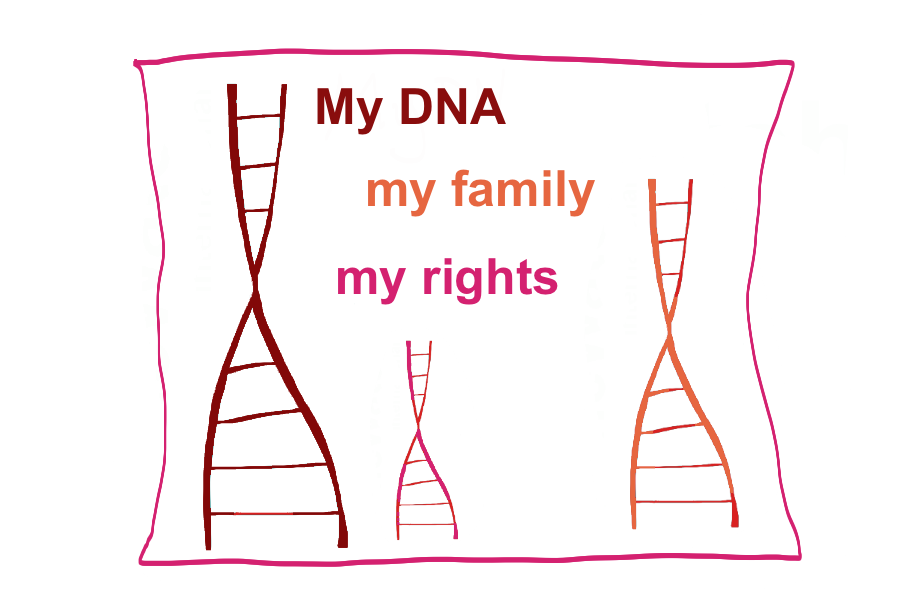Your DNA can act as a genetic fingerprint to identify you and find out who is related to you. Some governments and commercial companies think your genetic information should be included in national identity databases, and used on ID cards, in the future.
Any introduction of a DNA as part of ID system raises human rights implications for a population. Collection of DNA from people without consent is regarded as a violation of bodily integrity. DNA carries personal information about an individual, including allowing the identification of your relatives, and certain aspects of your health and physical characteristics. Even distant relatives may be identified, raising additional concerns regarding the potential discrimination against people of different racialised or minoritized peoples. As such, DNA information is considered private, and human rights safeguards are essential in maintaining the right to privacy and protection against mass surveillance.
While some countries do take DNA without consent, this is currently restricted by law to address criminal offences, when regarded by the state as necessary and proportionate to the criminal investigation. For criminal use, genetic information tends to be restricted by law to only parts of your DNA, to minimise the amount of personal information that can be gleaned from the information on personal health or physical characteristics. However, any collection of DNA for a biometric ID system may or may not restrict the amount of information that is collected, stored and used.
The use of population-wide DNA for identification is not foolproof, with identification errors increasing with the size of any database. False matches occur at higher rates between DNA profiles that may be partially the same as any database expands. Such issues raise vital concerns regarding any government proposal to enlist entire populations of people onto any ID scheme. In addition, including large numbers of innocent people on a DNA database significantly reduces its cost-effectiveness for solving crimes, as the majority of the population are not criminals. Moreover, DNA only plays a limited role in criminal investigations, with the majority of criminal cases not involving DNA evidence, challenging the rationale for population-wide databases.
Currently, no country in the world has legislation which allows the inclusion of DNA as part of a national ID system. However, a few countries have attempted to introduce such systems, with some laws being passed that were later annulled based on human rights grounds. In Kuwait, a final ruling against such a proposal was given in 2017, due to concerns about the compulsory nature and sweeping scope of the DNA testing. In Kenya, proposals for DNA collection to be performed on all citizens were made in 2018, but in 2020 the High Court ruled that it would be intrusive and unnecessary, and deemed unconstitutional. Other aspects of the ID scheme have also been put on hold. In 2019, media reports have suggested Nigeria has made plans to include DNA in its biometric ID system, though as of mid 2021, these appear not to have materialised.
Find resources in this category here.
